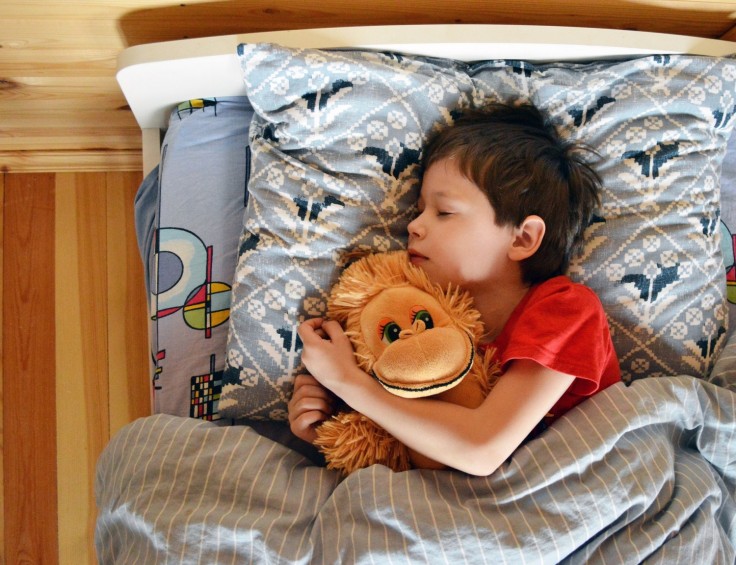
Judith Owens, M.D., director of sleep medicine at Boston Children's Hospital, says most parents assume a child's snoring is harmless. Still, it can be a sign of a sleeping disorder that might need an evaluation. The louder the snoring is, the more parents should be concerned, especially if their child snores consecutively three times a week.
Vanessa Lutz, mom of an 18-month-old son in Henderson, Nevada, told the outlet that her son, Teddy, had developed severe nosebleeds, nasal congestion, and dark circles under his eyes. The family did everything from using prescription allergy treatments, nasal rinses, and high-end air filters, but unfortunately, nothing helped.
As a result, Teddy, now 4, became an angry and depressed individual, and the mom observed that her son always says he doesn't want to school and hates going to school, which on her part, is very alarming to her.
So, the mom decided to bring her son to an expert in which she found out that Teddy's daytime symptoms, along with frequent snoring and nighttime mouth breathing.
Such are symptoms of an under-the-radar sleep disorder linked with problems entailing ADHD, obesity, depression, and poor grades.
Read Also : Amoxicillin Shortage: What Parents Need to Know
Typically appear between ages 4 and 8
Dr. Owens says more than half of all juveniles have some indications of sleep-disordered breathing.
This condition is more common than parents might actually suspect. This sleeping disorder typically appears between ages 4 and 8. However, some kids may be undiagnosed, making the condition gain attention from dentists, speech pathologists, and doctors who are zeroing in on methods to manage or even prevent the problem.
Stephen Sheldon, director of the sleep medicine center at Ann & Robert H. Lurie Children's Hospital of Chicago, says snoring indicates breathing problems that can stem from multiple causes.
Such causes may entail the shape of the skull, the length of a child's jaw and width of the palate, the upper airway, and congestion in the nose. These are common because of oversize tonsils and adenoids, per Parents.
Red flags to watch out for
Dr. Owens advises parents to observe their child's behavior, especially during sleep. Usually, the familiar red flags to watch out for are frequent allergies, overweight, hyperactivity, asthma, and large tonsils.
If you notice any of the mentioned signs, immediately discuss them with a pediatrician and ask for a referral to a specialist, whether a dental professional knowledgeable enough about the sleep-mouth connection, nose, throat, and ear doctor, or a sleep expert.
On the other hand, good sleepers maintain their lips closed and comfortably breathe through their nose. If a child's mouth routinely opens during sleep, then it could be a sign that their jaws are misaligned or a chronic nasal congestion.
Sleep apnea is a severe sleep disorder; this includes breathing stops and starts. Thus, one snores loudly and feels knackered despite having a whole night's sleep.
Yale Medicine says pediatric obstructive sleep apnea is curable. Thus, if the issue results from enlarged adenoids or tonsils, surgery to remove either or both provide treatment. Rarely, the child may need to wear a specialized medical device while they sleep.